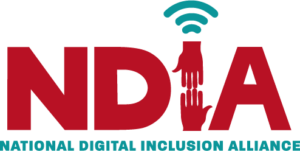House Committee on Energy and Commerce Discusses Digital Divide
On January 29, 2020, the House Committee on Energy and Commerce’s Subcommittee on Communications and Technology held a hearing entitled, “Empowering and Connecting Communities through Digital Equity and Internet Adoption.” During the hearing, House Representatives discussed the issue of the Digital Divide, with key witnesses including:
- National Digital Inclusion Alliance (NDIA) Executive Director Angela Siefer,
- City of Detroit Director of Digital Inclusion Joshua Edmonds,
- Georgetown Law Institute for Technology Law and Policy Distinguished Fellow Gigi Sohn,
- North Carolina Department of Information Technology Director of the Broadband Infrastructure Office Jeffrey Sural,
- and American Enterprise Institute Visiting Scholar Roslyn Layton.
Congressman Mike Doyle began the hearing by recognizing the challenges of internet adoption that go beyond internet access, stating, “All too often we talk about how many Americans don’t have access to broadband and discuss the resources necessary to close that gap. But the far more insidious threats are those who have broadband available to them but don’t sign up or those that don’t have the basic skills to use digital technologies.” While many factors impact an individual’s ability to access and utilize technologies, common barriers include affordability, digital literacy, and access to devices. Congressman Doyle mentioned that during the hearing, included parties would discuss these barriers, the risk of leaving people behind, and potential solutions.
Several issues were discussed during the hearing, including, but not limited to:
- the affordability of technology and internet,
- internet adoption in rural and urban communities,
- access to digital literacy and training,
- broadband availability and deployment,
- and cybercrimes and cybersecurity.
Both Congressman Doyle and Executive Director Angela Siefer mentioned the National Digital Inclusion Alliance (NDIA) and Computer Reach during the hearing, highlighting both organizations’ work to provide access to digital literacy classes and low-cost technologies. Congressman Doyle continues on to discuss the impact of digital literacy organizations such as these, stating that “these programs help engage communities and provide folks with pathways not just to get connected, but to leverage that connectivity to educate and empower themselves and their family members.”
To learn more, watch the full recording on the House Committee on Energy and Commerce website.



Leave a Reply